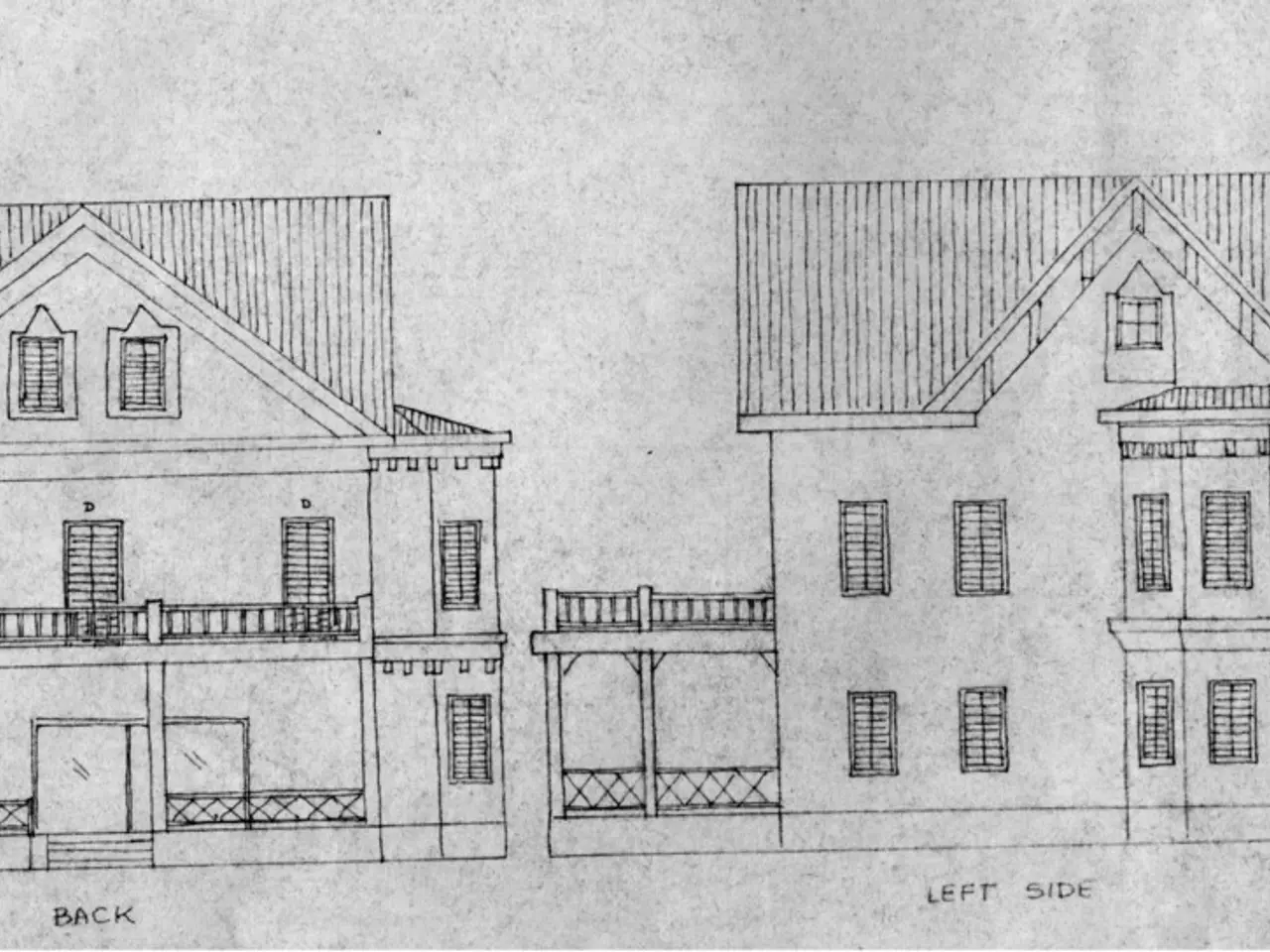Increased property tax rates under plan B
In a bid to promote transparency and ensure fairness, the state of Brandenburg has announced plans to create a transparency register. This register aims to assist municipalities in determining revenue-neutral tax rates for the upcoming real estate tax reform, scheduled for January 1, 2025.
The reform, intended to be revenue-neutral overall by the federal government, will introduce a new property tax from the same date. However, the Association of Property Owners has expressed concerns about potential dramatic increases, particularly with the Scholz model, and has presented model calculations to support their stance.
The Federal Constitutional Court has ruled that the underlying property values will be recalculated and used in the real estate tax formula. This decision is expected to have a significant impact on the tax rates across Germany.
The city of Lorch currently holds the highest real estate tax B tax rate nationwide at 1050. Meanwhile, in 13% of municipalities, the average tax rate for real estate tax B increased, while it decreased in only 1%. The average tax rate for real estate tax B increased by almost 5% in 2022 compared to 2021.
Several states, including Hesse, Lower Saxony, North Rhine-Westphalia, Schleswig-Holstein, and Brandenburg, are taking measures to prevent an increase in property tax. These states aim to ensure that municipalities lower the tax rate in the property tax formula to prevent higher taxes due to increased property values.
Ingo Decker, spokesperson for the Brandenburg Ministry of Finance, stated that a higher tax revenue from the property tax reform would be a violation of the spirit and content of the property tax reform law. He emphasised that the establishment of a transparency register is not a lack of trust in the municipalities, but rather a helpful tool for them.
The transparency register in Brandenburg will be a digital directory showing the revenue-neutral tax rates of each municipality. Meanwhile, the audit and consulting firm EY is conducting an analysis on the development of property tax B tax rates of all German municipalities (excluding city-states) from 2005 to 2022.
Notably, some municipalities do not charge real estate tax B. These include the Baden-Württemberg city of Büsingen am Hochrhein, the Rhineland-Palatinate municipalities of Bergenhausen, Gornhausen, Horath, Rayerschied, Reuth, Riegenroth, Wahlbach, and in Schleswig-Holstein Friedrichsgraben, Hedwigenkoog, Hillgroven, Norderfriedrichskoog, Oesterwurth, Strübbel, Südermarsch, and Wesselburener Deichhausen.
Some municipalities have notably high Gewerbesteuer (trade tax) rates, which may reflect similarly high Grundsteuer B rates. For example, Inden in North Rhine-Westphalia has a trade tax rate of 650%, while Wettlingen in Rhineland-Palatinate has a rate of 600%. Many municipalities, however, have rates between 400% and 500%. For instance, Pfinztal has a Grundsteuer B rate of 231% as of 2025, but rates for 2022 are not specifically listed.
Further details on the reactions of several states to limit municipalities in property tax are not provided in the given paragraph. However, it is clear that the property tax reform is a topic of significant interest and concern for both property owners and municipalities across Germany.
Read also:
- Duty on cotton imported into India remains unchanged, as U.S. tariffs escalate to their most severe levels yet
- Steak 'n Shake CEO's supposed poor leadership criticism sparks retaliation from Cracker Barrel, accusing him of self-interest
- Hydrogen Energy: Sustainable Innovation or Resource Exploitation?
- Dim outlook for a major energy corporation







